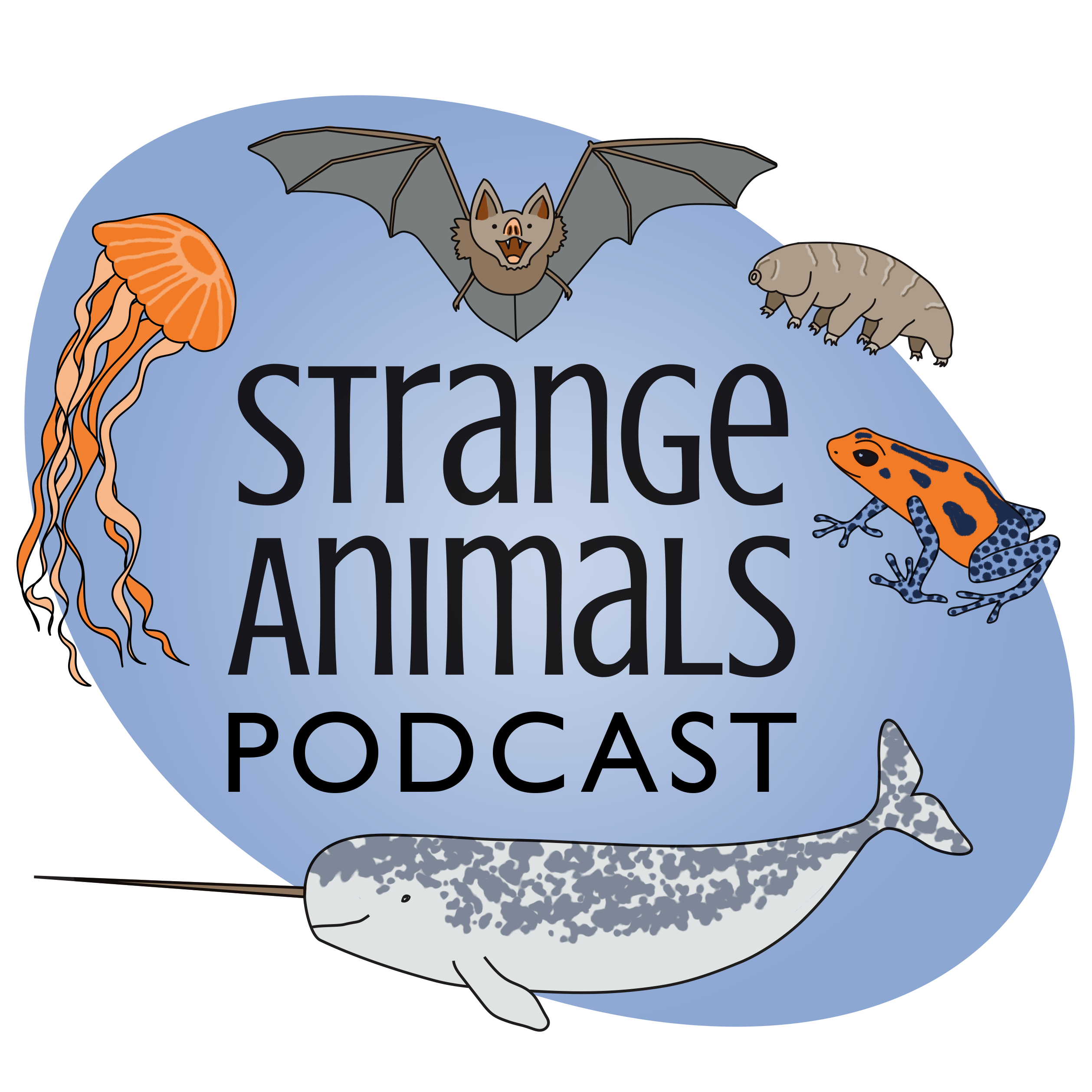Episode 317: Wild Ponies

b"Thanks to Leo for suggesting this week's topic, the ponies of Assateague Island!\\n\\nFurther reading:\\n\\nAssateague Wild Ponies\\n\\nSome ponies running free on Assateague Island [photo taken from the site linked above]:\\n\\n\\n\\nShow transcript:\\nWelcome to Strange Animals Podcast. I\\u2019m your host, Kate Shaw.\\nThis week we\\u2019re going to learn about the feral horses of Assateague! Thanks to Leo for the suggestion! That\\u2019s the grown-up Leo; we also have a young Leo who\\u2019s sent some great suggestions, including one we\\u2019re hopefully going to get to pretty soon.\\nBefore we talk about Assateague ponies, though, we need to start somewhere else. The kelpie is a Scottish water spirit that\\u2019s supposed to appear as a pony wandering by itself, but if someone tries to catch the pony or get on its back to ride it, suddenly it drags the person into the water and either drowns them or eats them. It\\u2019s said that the only way to tell that the pony isn\\u2019t really a pony is to examine its feet. A real pony has hooves, but a kelpie has claws.\\nThe story comes from the olden days when it was common to see ponies wandering around loose in Scotland and other parts of the UK. Some of the ponies in these areas were semi-feral, meaning they lived a lot of the time like wild animals. Some ponies were kept in stables and farmyards as working animals, but others were allowed to roam around and feed themselves as they liked. Every so often the wild ponies would be rounded up and any young ones branded by their mother\\u2019s owner. Sometimes the owner would need another pony to pull a cart or something, and they\\u2019d catch one of their ponies and bring it home to train. Sometimes the owner needed money so would catch some of their ponies to sell. The ponies that lived this way had to be tough and hardy to survive almost without human care, but luckily ponies are famously tough.\\nPonies are a type of small horse, but they\\u2019re still horses. They\\u2019re generally sturdy, with a thicker coat than a full-sized horse, and usually stand around 14 hands high at the withers at most. The withers is the little bump of shoulder at the base of a horse\\u2019s neck, and the horse\\u2019s back starts behind the withers. A hand is an old horse measurement that has been standardized to four inches, or just over 10 cm, roughly the width of an adult person\\u2019s hand. 14 hands is equivalent to about 4 and a half feet tall, or 1.4 meters.\\nOne of the best-known pony breeds is the Shetland pony, which also happens to be one of the smallest. It only stands 42 inches tall at most, or 107 cm. That\\u2019s about 3 and a half feet tall. It\\u2019s mostly used as a child\\u2019s mount but originally the Shetland was used to pull carts and plows and carry heavy loads, since despite its small size the Shetland pony is incredibly strong.\\nThe Shetland comes from the Shetland Isles off the northeastern coast of Scotland, where it\\u2019s lived for at least two thousand years and probably more like 3,000. The islands get very cold in winter and there isn\\u2019t a lot of food, so over time the ponies evolved to be small and tough to survive.\\nOn the other side of the Atlantic Ocean, there are feral horses living on an island called Assateague. Assateague Island is off the eastern coast of the United States, closest to the states of Virginia and Maryland. They\\u2019re actually not technically ponies except that they\\u2019re small, since ponies actually share certain traits that differentiate them from horses, even though these differences aren\\u2019t enough to call ponies a subspecies of horse. But because the Assateague horses rarely grow taller than 4 and a half feet tall, or 140 cm, people call them ponies.\\nI\\u2019m going to stop here and tell you a personal story, because I\\u2019ve actually seen the Assateague ponies myself. I lived in Pennsylvania for a little while after I finished grad school, and at the time I had an awesome dog named Jasper, a Newfoundland I got through Newf rescue. Newfies are bred to be water dogs in the harsh coastal regions of Newfoundland, Canada,"